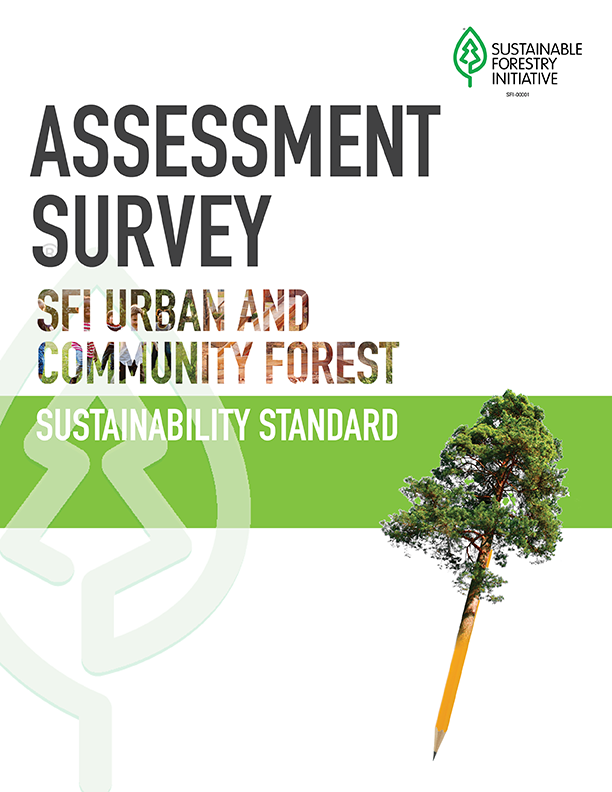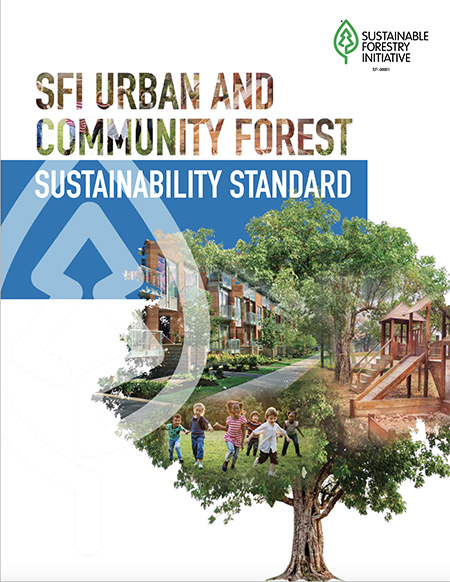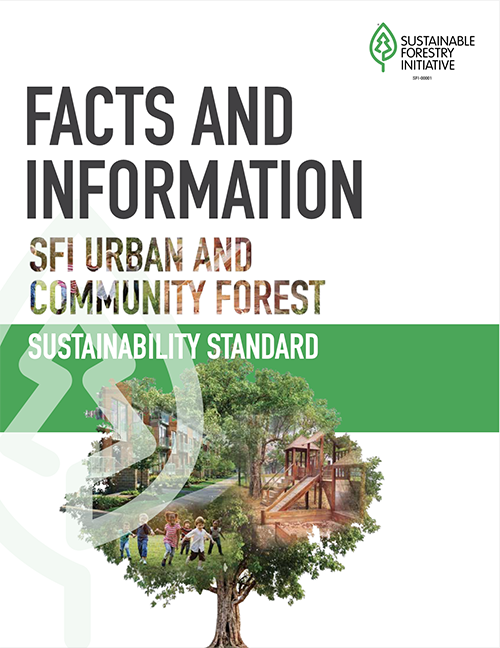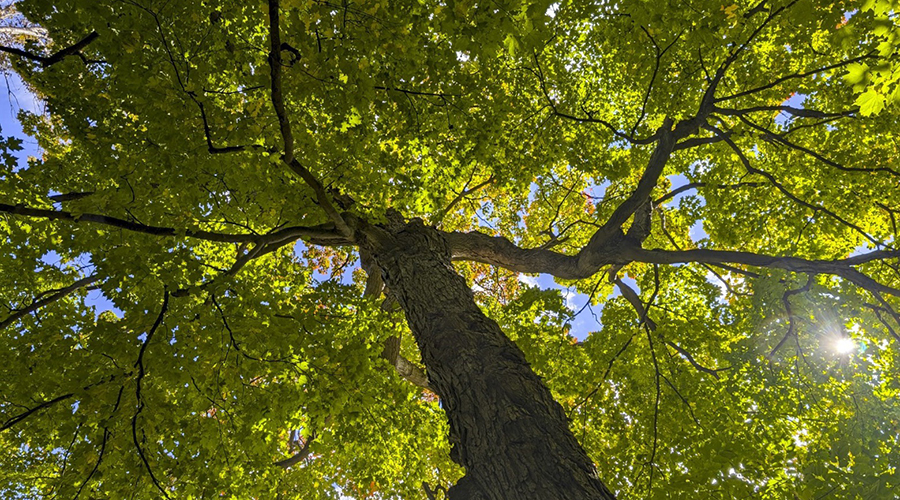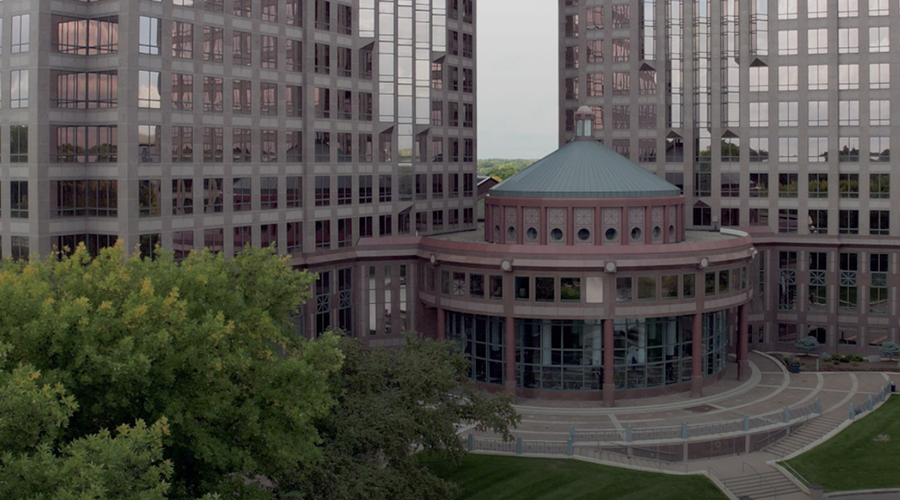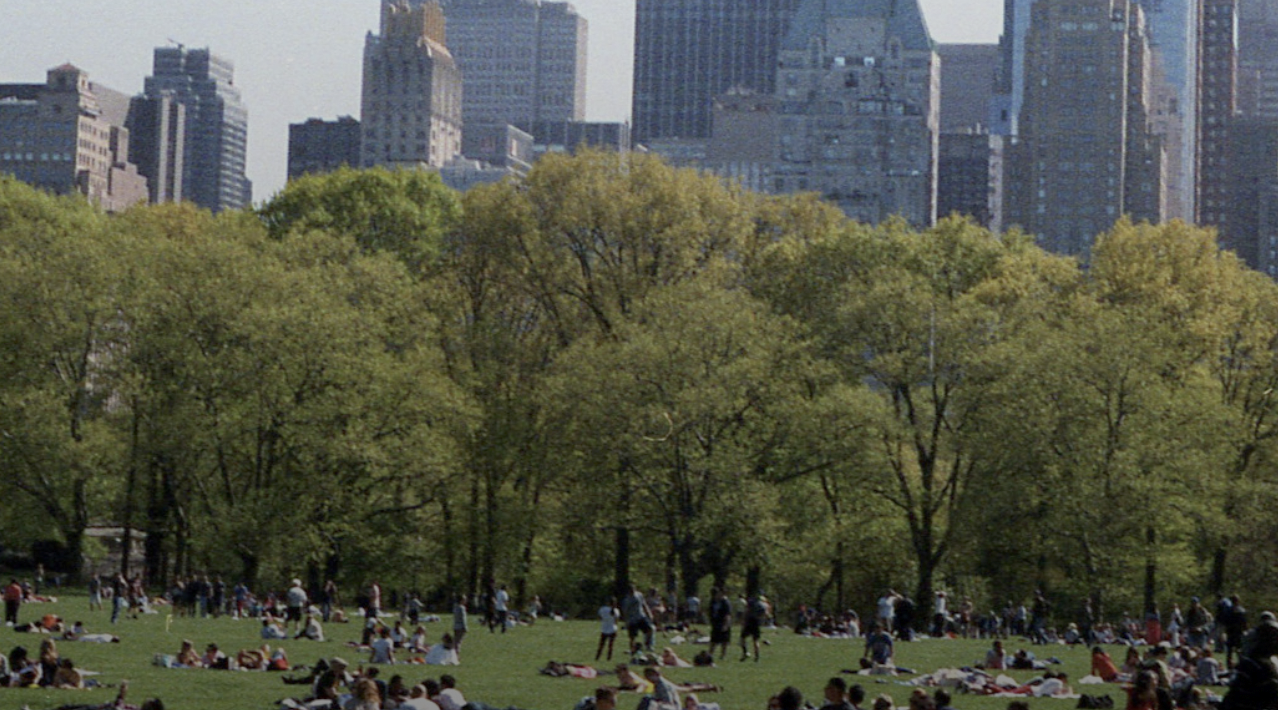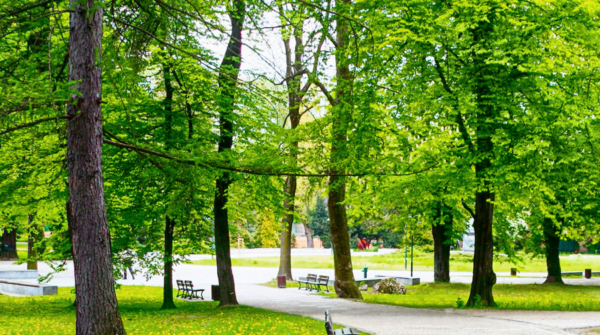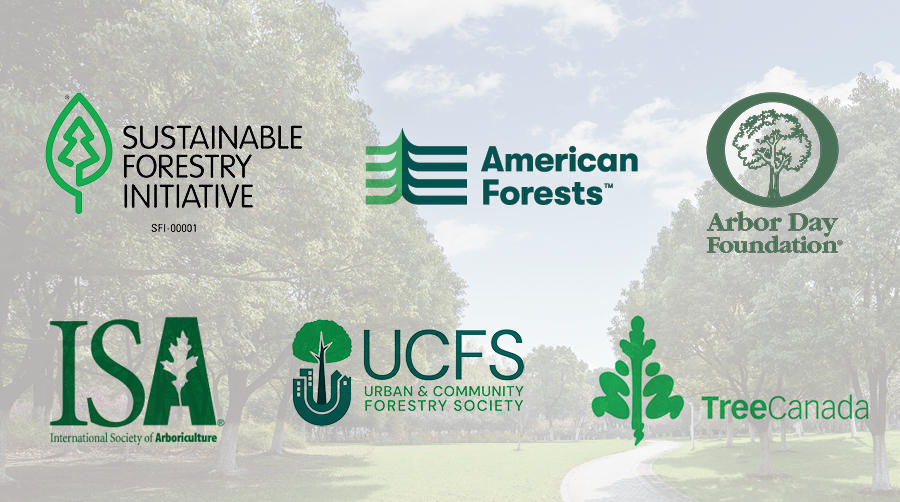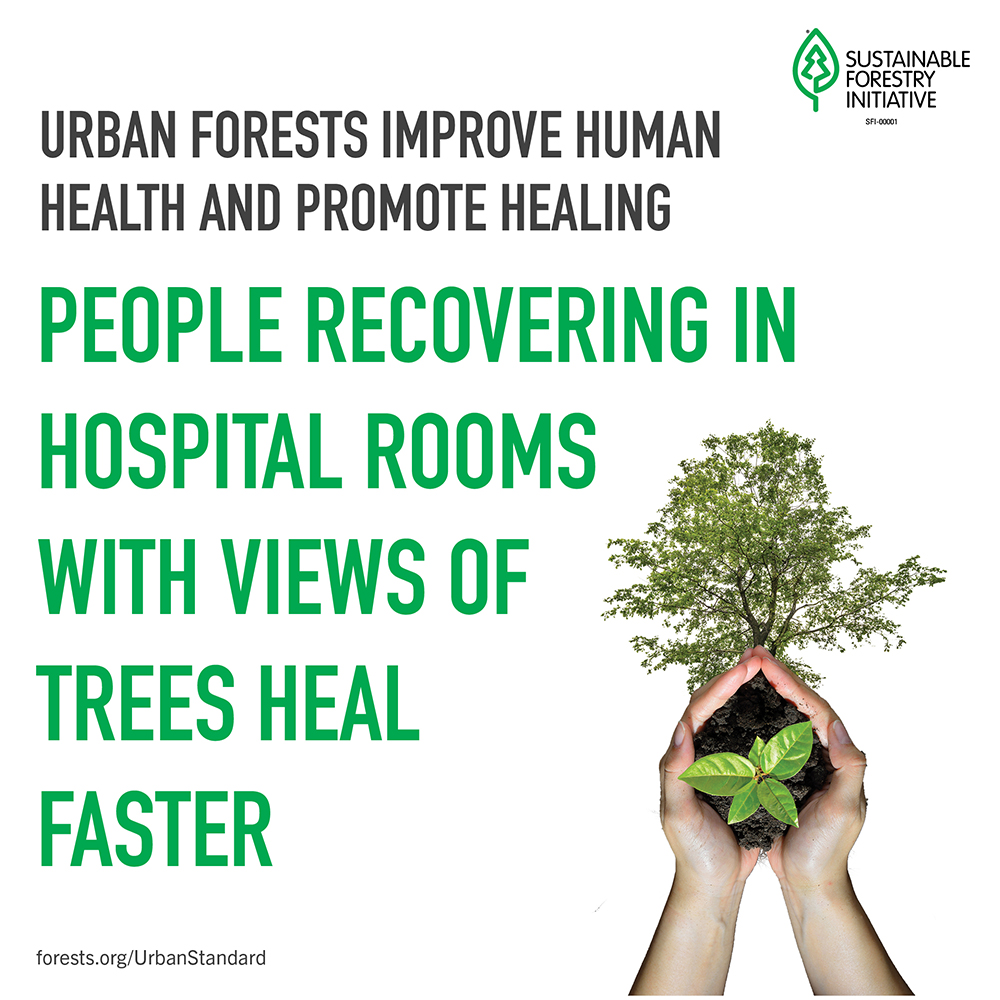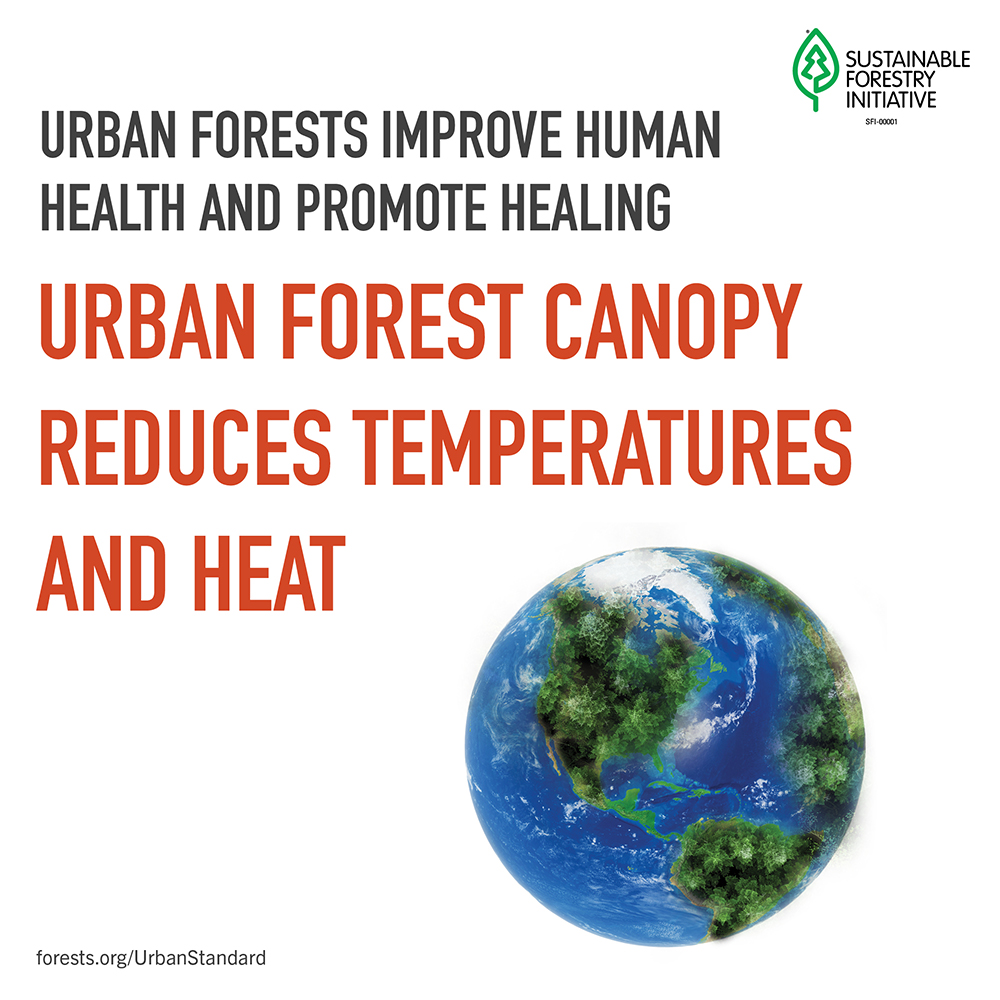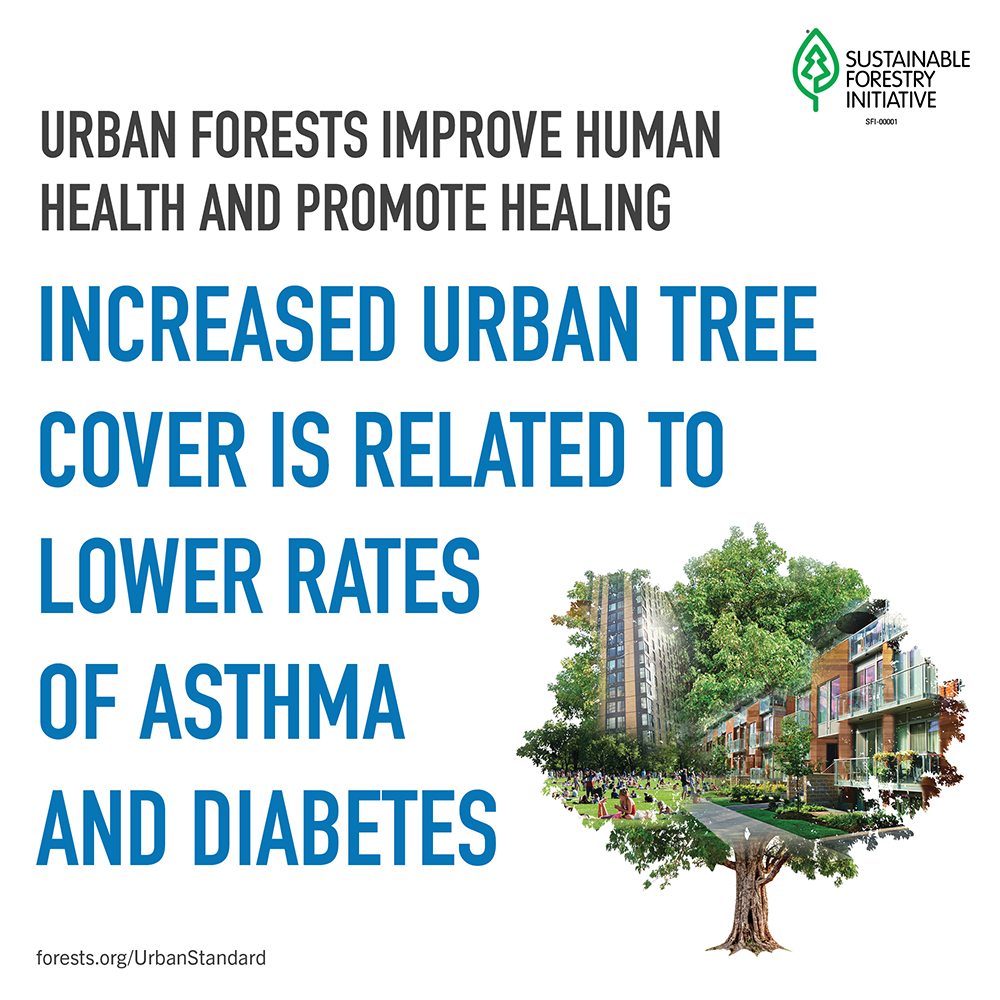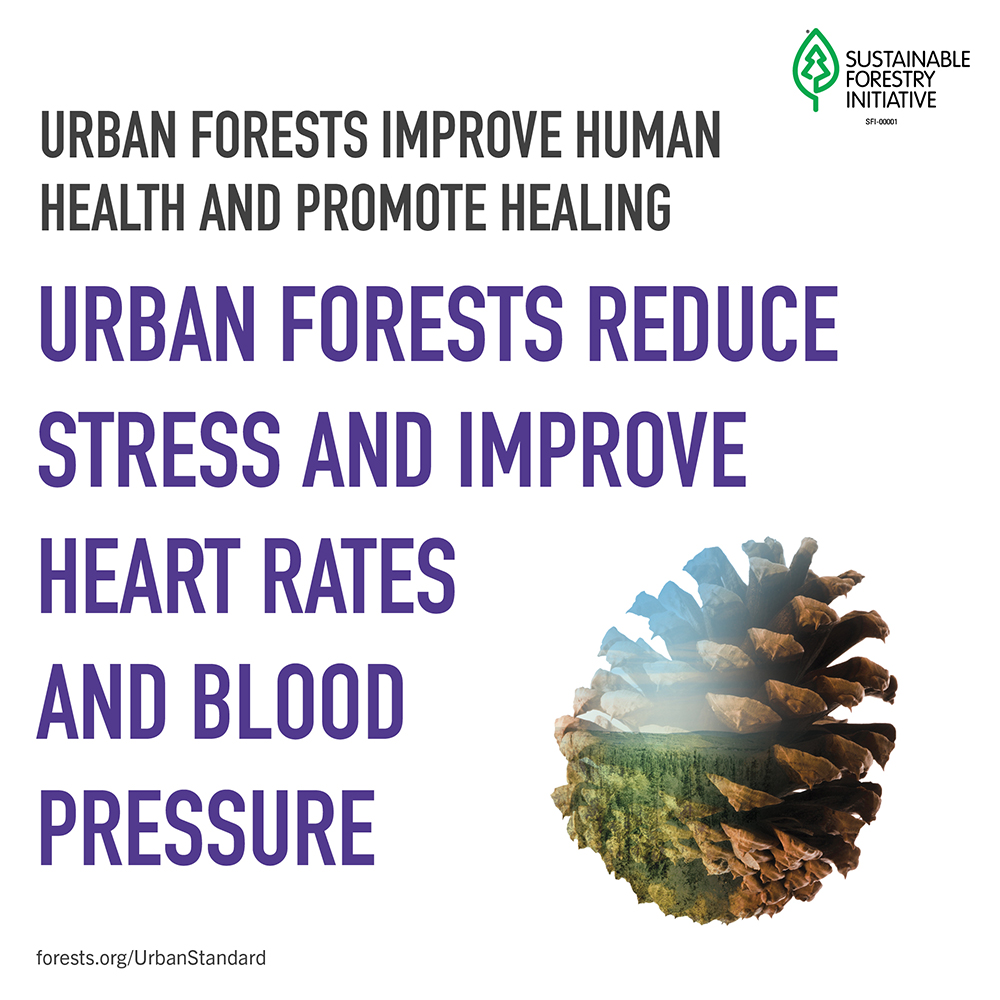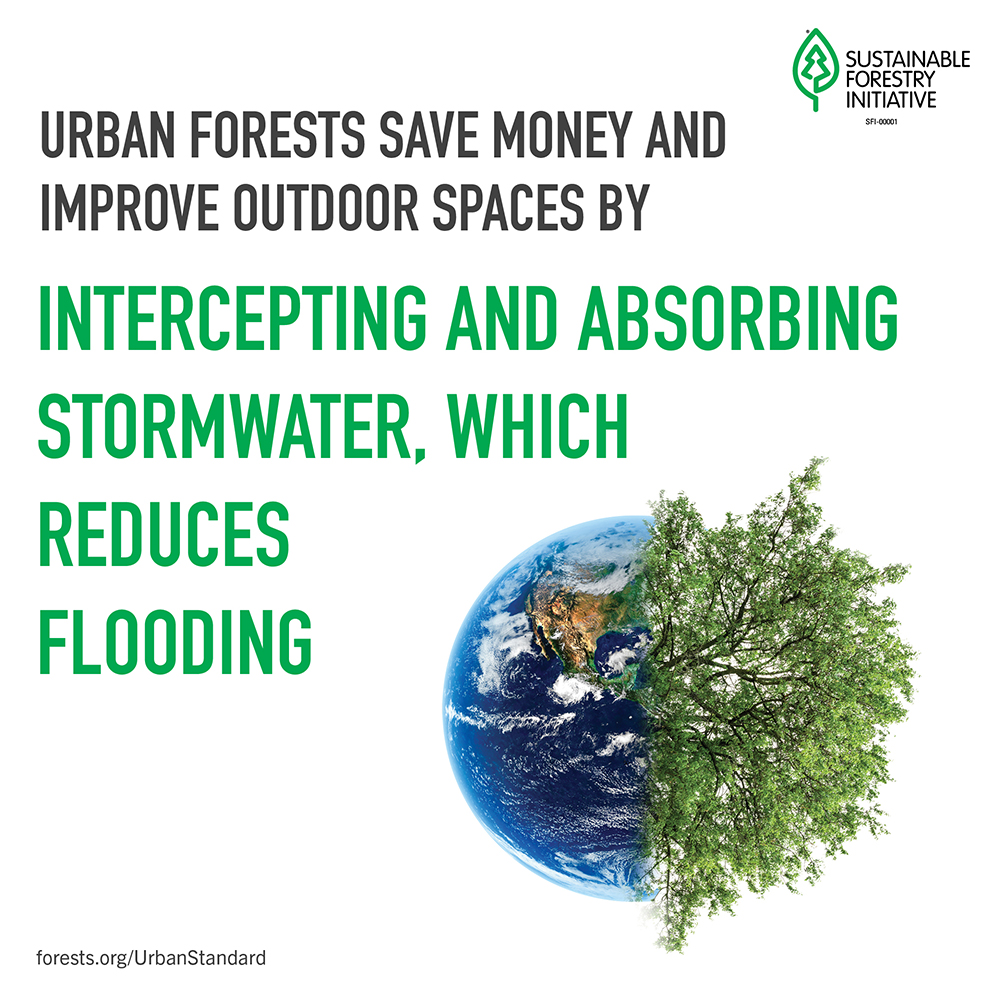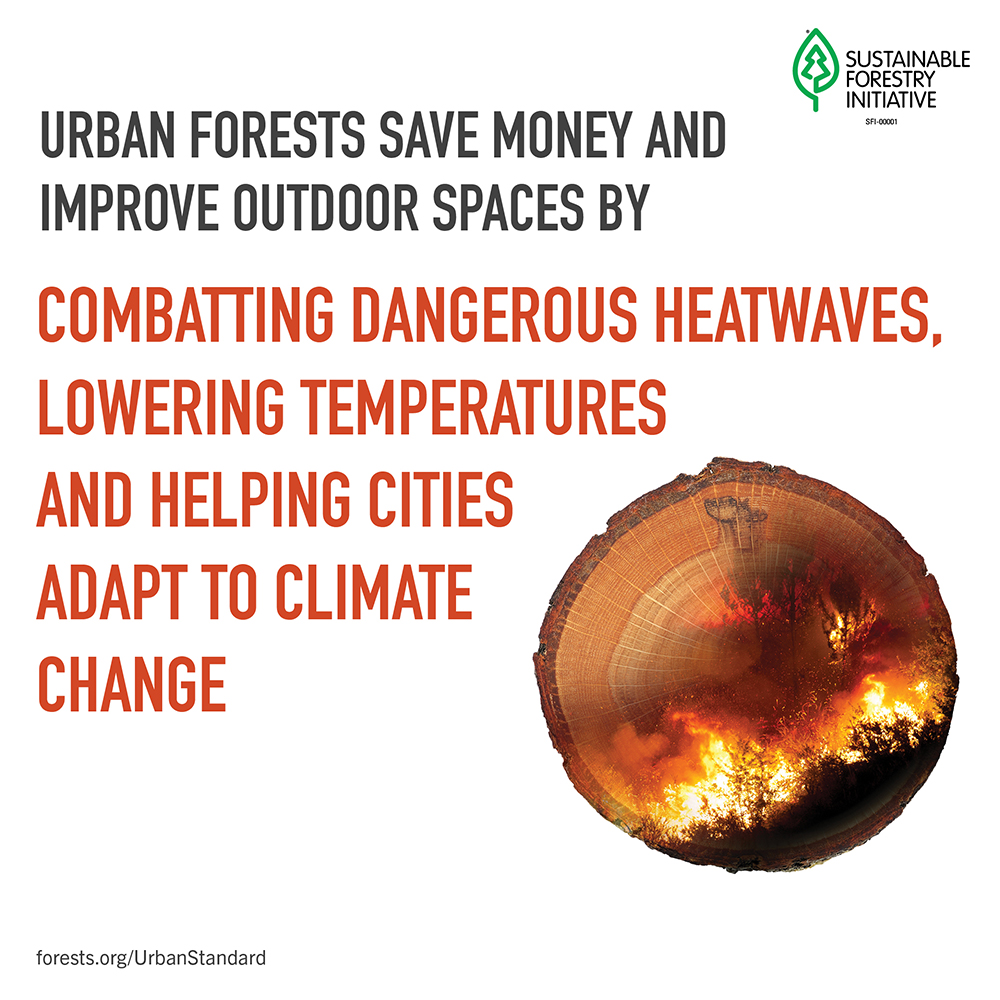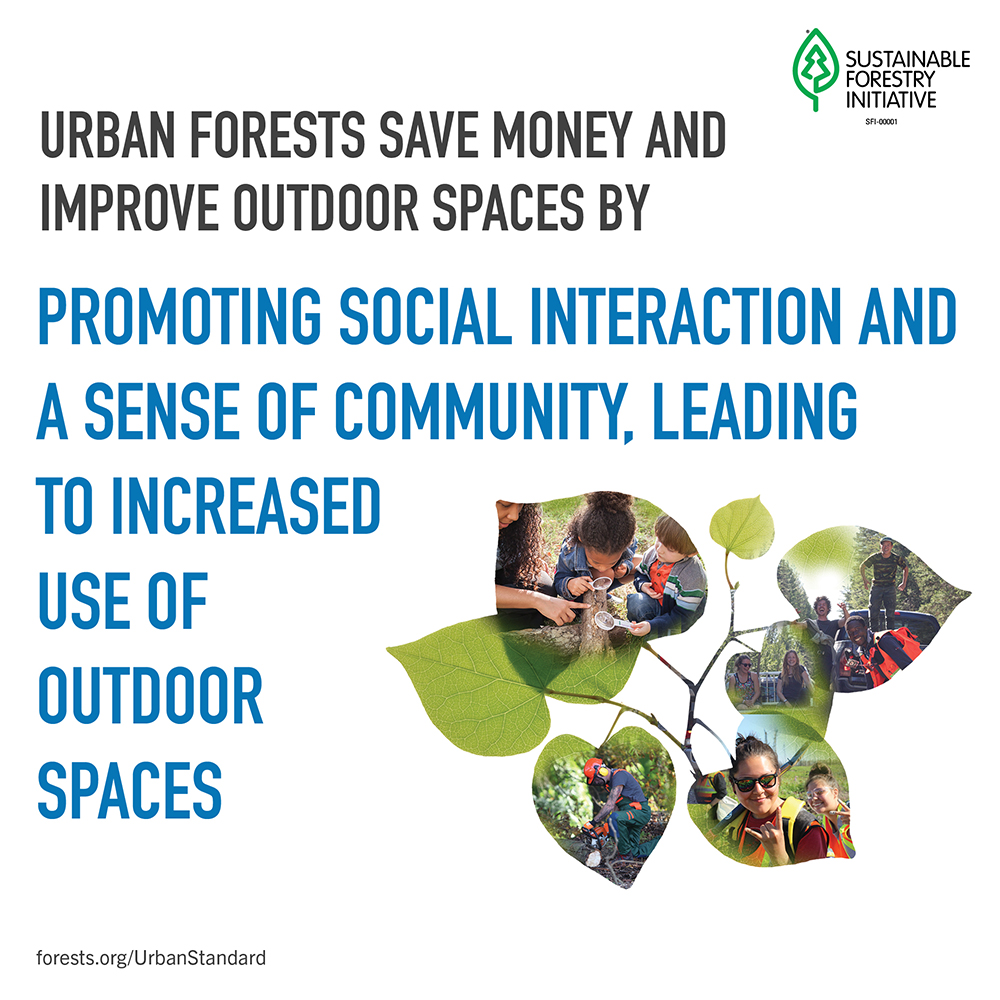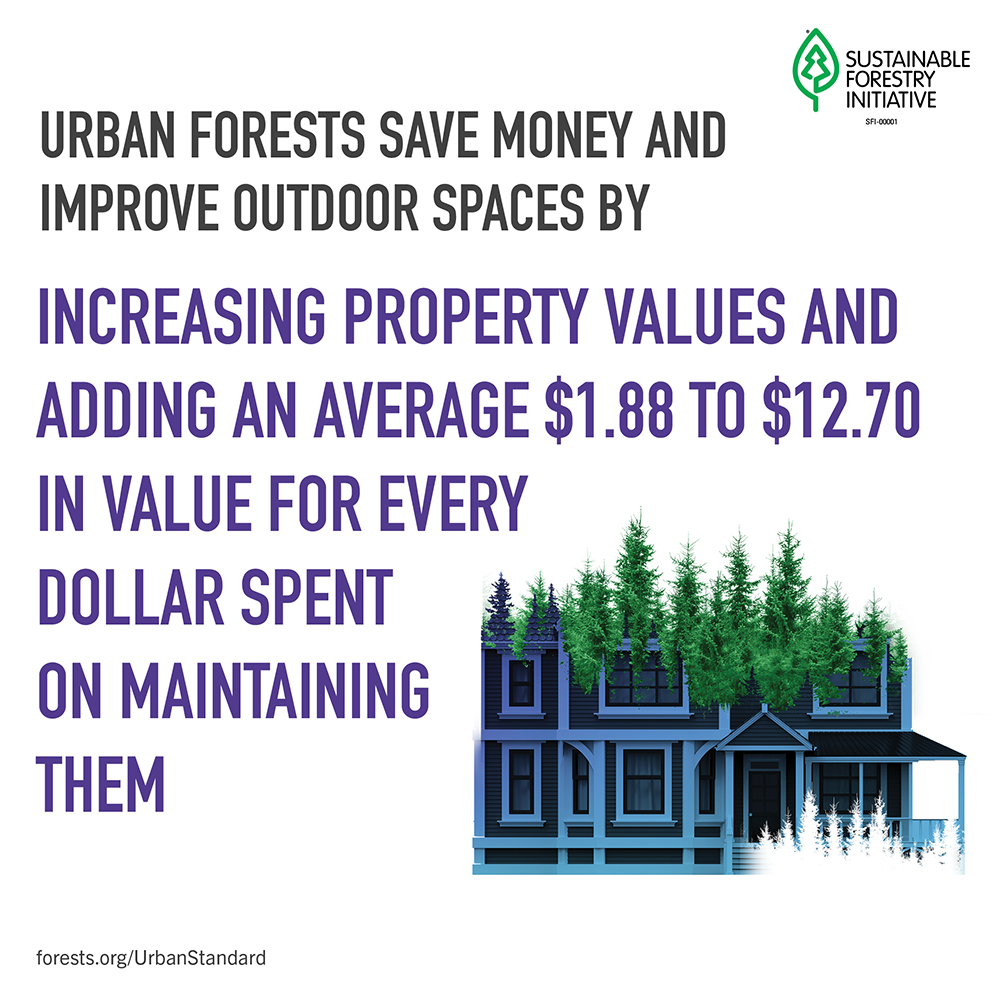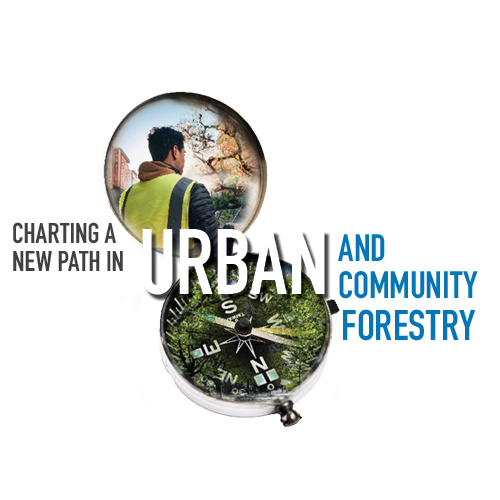SFI URBAN AND COMMUNITY FOREST SUSTAINABILITY STANDARD
LEAD THE WAY TO GREENER, HEALTHIER CITIES WITH THE SFI URBAN AND COMMUNITY FOREST SUSTAINABILITY STANDARD
- The world’s first forest standard for communities
- Promotes nature-based solutions and resilience to climate change
- 16 objectives for urban and community forest certification
- Third-party audits demonstrate effectiveness of management
- Applicable to cities and town of all sizes, anywhere in the world
- Perfect for corporate, hospital, and university campuses
- Helps maintain and enhance the many values of urban trees
Learn more about the thematic certification options:
-
- Community Well-Being and Human Health
- Environmental and Conservation Leadership
- Climate and Disaster Resilience
- Urban Forest Improvement
Download the SFI Urban and Community Forest Sustainability Standard here. (English | French | Spanish)
SCOPE
This standard is appropriate for organizations that own, manage, or are responsible for urban and/or community forests. These organizations can come from all facets of the urban and community forest sector, including, but not limited to: governmental organizations (i.e., municipalities, counties, states, provinces), non-governmental organizations, Indigenous Peoples, community groups, healthcare organizations, educational organizations, and corporate organizations.
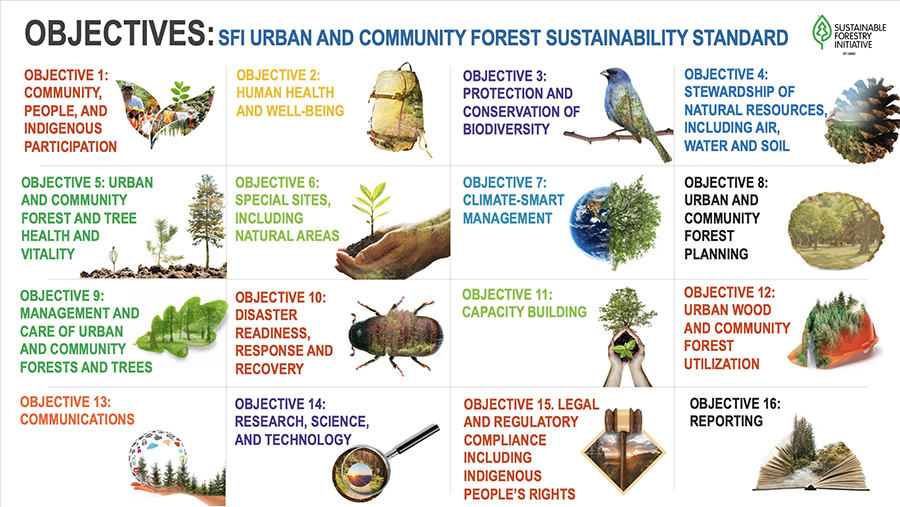
FAQs
LEARN MORE
DID YOU KNOW
SUPPORTING FACTS AND RESOURCES
GUIDANCE FOR SFI URBAN & COMMUNITY FOREST SUSTAINABILITY STANDARD
SFI LAUNCHES PARTNERSHIP FOR URBAN AND COMMUNITY FORESTS
STANDARD DEVELOPMENT PROCESS
FACTS AND INFORMATION: SFI URBAN AND COMMUNITY FOREST SUSTAINABILITY STANDARD
SFI URBAN FOREST IMPROVEMENT GRANT PROGRAM
Full SFI 2022 Standards and Rules Documentation
Major Enhancements in the SFI 2022 Standards
Transition to the SFI 2022 Standards and Rules
Guidance For SFI Urban and Community Forest Sustainability Standard
Meagan Hanna
Director of Urban and Community Forestry for Canada
Tel: 613-800-3074
Michael Martini
Director of Urban and Community Forestry for US
Tel: 202-918-4701
Gregor Macintosh
Senior Director, Standards
Tel: 778-351-3358
Rachel Dierolf
Director, Data Analytics and Reporting
Tel: 613-274-0124
